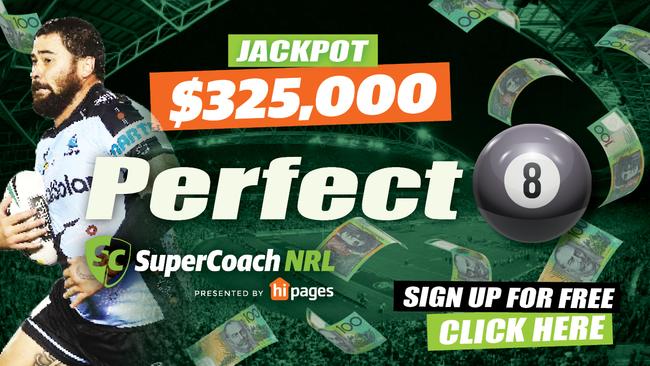Paul Kent: New South Wales’ rookie selection strategy could pay massive dividends... in time
THE last time NSW had anywhere near this many debutantes was nearly 30 years ago when Jack Gibson had control. So how does Brad Fittler’s side compare and what can he learn from the 1989 struggles?
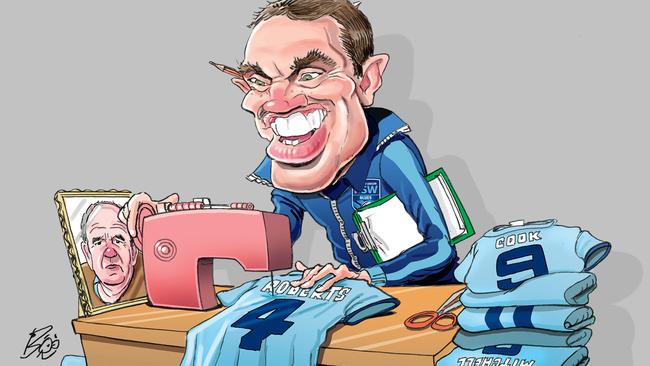
Blues
Don't miss out on the headlines from Blues. Followed categories will be added to My News.
TOO many false dawns have dimmed the NSW experience for, oh, the last dozen years or so. Blues fans have been left to contemplate it too long, realising with a slight bitterness that you can get less for murder nowadays.
Which might have crossed the odd mind as the Maroons fans celebrated another series victory with typical humility.
Yet the moment Brad Fittler picked 11 debutantes a new mood engulfed Blues fans.
One of hope.
JOHNS: Cook the key to exploiting Maroons
IMPACT: Vaughan goes from life-support to Origin
CONFIDENTIAL: Dogs poach Knights gun to replace Mbye

Lost in the optimism, though, is the reality of bringing 11 players into what anybody who has experienced it describes as the toughest environment in rugby league and hoping they all handle the bright lights.
The last time NSW had anywhere near this many debutantes was nearly 30 years ago when, with a little irony, Fittler narrowly missed selection himself as a debutante in Jack Gibson’s 1989 team.
Fittler’s omission sparked plenty of debate at the time. His chief advisor this year, Greg Alexander, was named as a rookie, though.
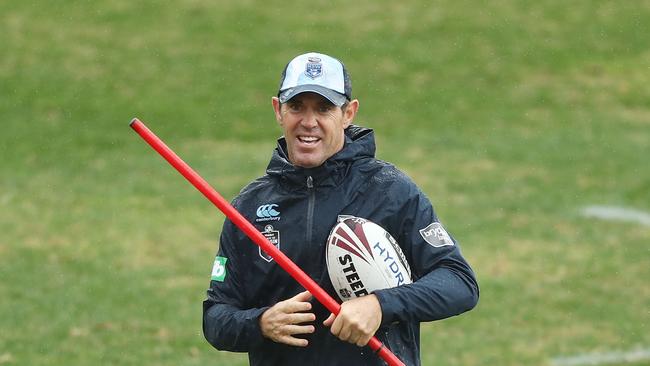
It was an inglorious experience. Few remember NSW lost that game 36-6.
It was an Origin record that stood for more than a decade.
Fittler hopes to overcome that next Wednesday.
Such is the hope for his team the Blues are solid favourites, an absurdity based less on the supposed strength of his team than the fact Queensland has lost Cameron Smith, Johnathan Thurston and Cooper Cronk from last season.
Forget that Thurston and Cronk were replaced by Australian players Cameron Munster and Ben Hunt, and Smith by 200-game player Andrew McCullough, somehow the Maroons have wrangled the underdog status again.
LISTEN! The Big Don’t Argue is here and our new podcast tells you everything you want to know and possibly don’t want to know about State of Origin 1! Have a listen.
They were eight Origin rookies back then and the job proved too big for them.
Still, a quick look at their careers, in the rearview mirror, shows the upside of such bold courage.
Laurie Daley (centre): Went on to become one of NSW and Australia’s greatest players, with 23 Origins and 26 Tests, including the 1990/94 Kangaroos Tours.
Before the ’89 season was over Daley helped lead Canberra to their first premiership in the Greatest Grand Final Ever, the 1989 decider against Balmain. He would win two more premierships before his career was over.
He was Dally M Player of the Year in 1995 and was a key player in the Super League war, his signature regarded as vital. He was Super League Player of the Year in 1997.
Daley was inducted in the NRL Hall of Fame and is ranked one of the game’s 100 greatest players.
Chris Johns (wing): Johns became the first Queensland-based player to represent NSW when Big Jack picked him. He won two premierships with Brisbane and played nine Origins and nine Tests and toured with the 1990 Kangaroos.
Helped set up the Melbourne Storm in retirement Now a successful businessman in Brisbane.
Mario Fenech (hooker): His selection was considered a reward by coach Jack Gibson for curbing his earlier fire and brimstone ways.
Fenech was called “Test match” in his early playing days, not always kindly, because he prepared for every game like it was a Test.
This season he was finally on the way to playing for Australia but, cruelly, broke his thumb and was ruled out for Game III. Fenech, aware what the small broken bone meant, insisted he could play with the thumb but was ruled out.
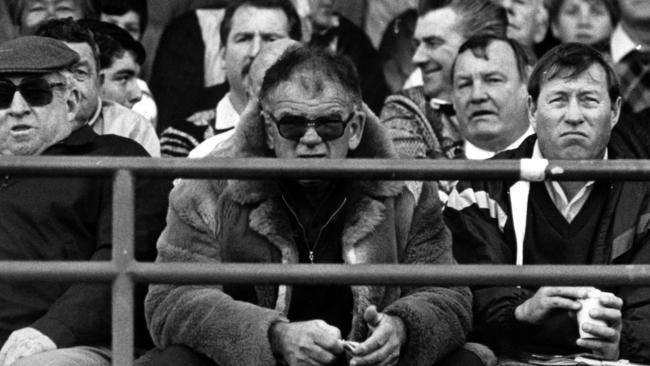
The injustice was complete when he never got another chance to play for Australia. After a 275-game career he now works at the NRL.
John Cartwright (prop): Cartwright was halfway through his career when Gibson chose him. It was an inspired choice.
His game flourished, winning the Dally M Second Rower of the Year in 1990 and 1991 and playing a big role in Penrith’s first title in 1991. Played eight Origins and seven Tests, including the 1990 Kangaroo tour.
Cartwright coached the Titans for eight years and is now Trent Barrett’s assistant at Manly.
Paul Sironen (second row): By the time Sirro made his debut for the Blues he was a well established Test player. He toured with the Kangaroos in 1986 and would again in 1990 and 1994, all up playing 23 Tests for Australia.
A Dally M Rookie of the Year in 1986, he was Representative Player of the Year in 1993 and Second Rower of the Year in 1990, ultimately playing 14 Origins. Now works with Wests Tigers juniors.
Brad Clyde (lock): Brad Clyde was so good he changed the way the game was played.
Clyde was so busy he often took two hit-ups in the set, then led the kick-chase before knocking off two and three tackles in defence.
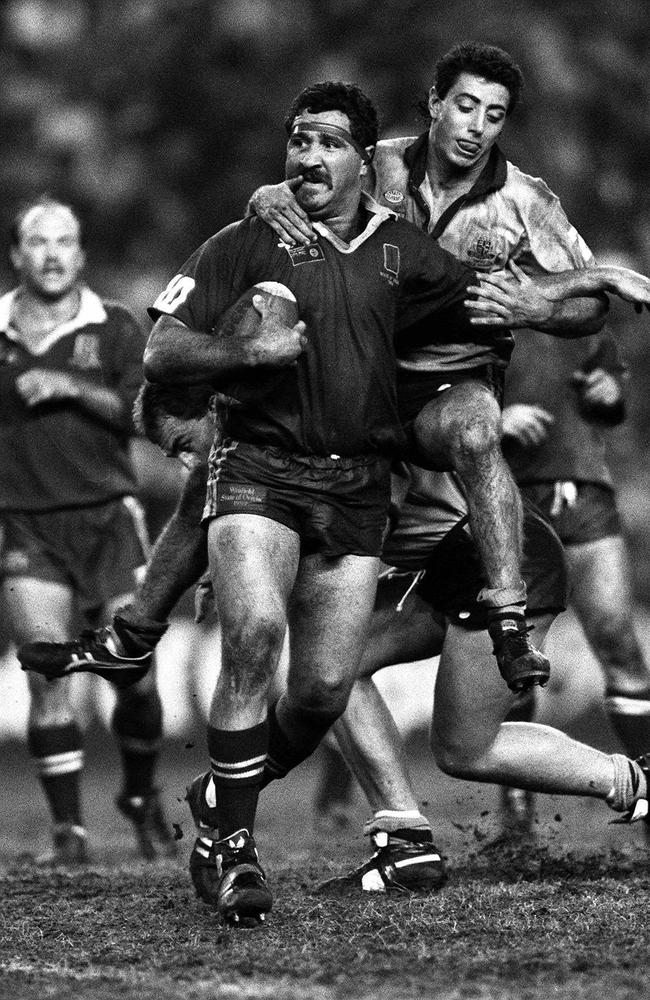
Then he would be back in time for the first hit up on kick return.
A big man, he had the pace to run 50m and 60m to score, which he did regularly.
Clyde was also a part of all three Canberra premierships. He won the Clive Churchill Medal in the 1989 and 1991 grand finals, the Harry Sunderland Medal after the 1992 Test series, the Dally M Representative Player of the Year in 1992 and Lock of the Year in 1989/90.
Add to that 21 Tests, 12 Origins and a place in the Hall of Fame and 100 greatest players.
Greg Alexander (bench): Penrith’s greatest player. Led the club to their first premiership two years later.
Alexander was Dally M Rookie of the Year in 1984 and Dally M Player of the Year in 1985. In an era of great number sevens he won the halfback gong three times.
Six Tests, including the 1990 Kangaroo Tour and a celebrated backflip against France, and six Origins.
Glenn Lazarus (bench): Arguably the greatest prop the game has seen.
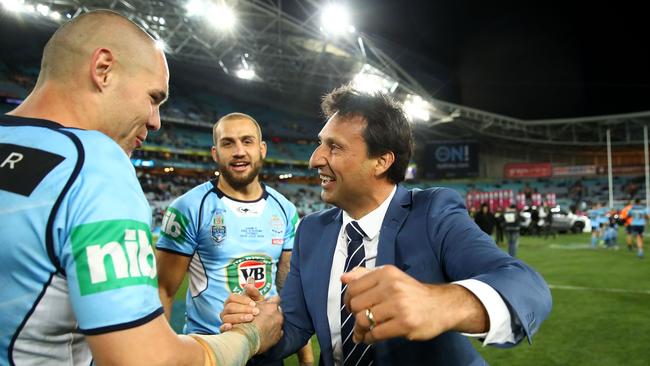
Lazarus was a pup when Gibson selected him, a selection that shocked many.
But the coach saw what the world soon would; nobody went forward better than Lazarus.
It’s why he won premierships with Canberra in 1989-90, Brisbane in 1992-93 and Melbourne in 1999, the only player to win premierships at three different clubs.
More, it was each club’s inaugural premiership.
Lazarus retired after 22 Tests, two Kangaroo Tours in 1990/94 and 19 Origins. Throw in a Dally M Prop of the Year in 1992 and inclusion in the 100 greatest players and also Hall of Fame.
If there is a difference between Gibson’s 1989 team and Fittler’s 2018 version, a place you might go looking for a little reinforcement, it is in the difference of the modern day rookie.
There is no doubt the original Baby Blues were overawed by the occasion of Origin.
That is the way all young players were.
The modern young player is different. They walk into a team like they own a 25 per cent interest.
Nobody needs to tell them they belong.
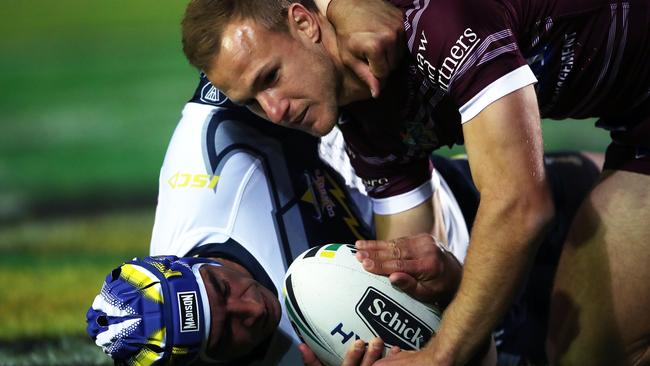
TIME FOR A RE-THINK TO NRL CHARGES
THE idea has come up at the NRL that a complete re-think on its charges and punishments might be necessary.
While nobody is suggesting a return to the Jim Comans days, where careers were effectively ended for foul play, there is little doubt the game has softened significantly on what used to be considered unfair play.
Manly’s Jack Gosiewski was charged with a grade one shoulder charge for his late shot on Johnathan Thurston Thursday night. An early plea puts him out for just a week.
The charge gave no consideration to the fact it was late or, also, in the back of a player not looking.
It should have been much harsher.
The game has lost its way on foul play, cowered by coaches who attack soft send-offs as ruining the game.
Coaches show no responsibility for the game’s welfare and the players no regard for each other, so it is up to the NRL to enforce it through simple rules and harsh punishment.
There is no sadder sight than seeing an old champion like Thurston dragging himself up off the ground after being knocked down by cheap shots.
CORRECTION TO ANDREW JONES
A LITTLE correction regarding my Friday piece on NSW Cricket boss Andrew Jones.
We stated incorrectly that Jones faced court after being busted texting while driving, an embarrassment given NSW Cricket’s major sponsor is Transport for NSW.
Jones was fined for texting while driving but did not face court.
Happy to clear that up.
Watch every game of every round of the 2018 NRL Telstra Premiership on FOX SPORTS. SIGN UP NOW >

